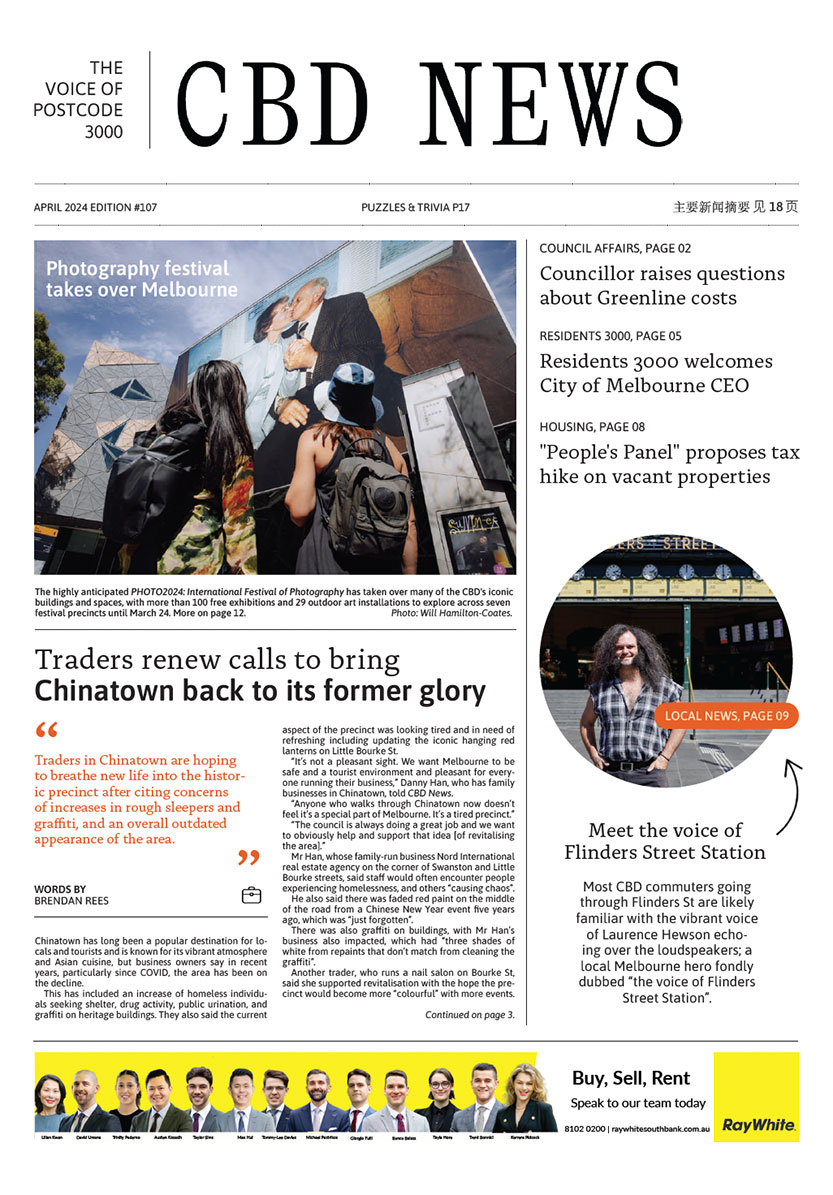What’s it like to grow old in the CBD? Council strategy released
By Meg Hill
Inequality and disadvantage are affecting the CBD’s senior residents in worrying areas, according to a new report by the City of Melbourne.
Thirty per cent of City of Melbourne residents aged 65 and over rely on an aged pension allowance, over a third of residents over 60 have no internet access, and a third also live alone.
Dementia is estimated to affect 970 people in the City of Melbourne, a number predicted to rise to 5800 by 2050.
Prevalence of elder abuse is estimated by be at 10 per cent in the area, and 25 per cent of residents aged over 60 are still renting.
The inner city’s homelessness issue also adversely affects the older community, with statistics showing a 31 per cent increase in the number of older women experiencing homelessness between 2011 and 2016.
The statistics are included in the City of Melbourne’s draft strategic plan A Great Place To Age.
The draft was released in December for a period of community consultation, which ended in January.
The report outlines the council’s vision for older Melburnians and plans for the next four years, and identified seven key social priorities: ageism, dementia, elder abuse, end of life, life transitions, loneliness and social isolation and racism.
Chair of the people city portfolio Cr Beverley Pinder said it was “one of the most important strategies this council will vote on in months to come” when the report was endorsed in December.
“The plan is actually to challenge ageism and the negative attitudes that surround that and the behaviours toward it as well,” Cr Pinder said.
“It endeavours to change the discourse on ageing, taking it from invisibility and vulnerability to one of price, strength, positivity, activity, resilience and overall wellbeing and peace of mind.”
Lan Ping, 63, said she witnessed these issues as a CBD resident and a volunteer with U3A – an educational institution for the senior community.
“A lot of people want to downsize and move to the city when they get to that age. Volunteering, I meet a lot of people who downsize from big inconveniently located houses, but they can’t afford to buy,” she said.
“So, they’re renting in the city and they’re renting really small places because they’re so expensive.”
“A lot of older people feel isolated in the city, and they feel bashful even about small things like asking for help with the internet, because they feel they’ve been left behind a bit.”
Lan Ping said she thought a “dedicated seniors’ centre” in the city would be the best way for the council to start solving some of the problems.
“There’s a lot of great ideas in the report but I just think a more focused centre would be the best way to go,” she said.
“In relation to the internet the council has a lot of libraries and computers, but librarians have a lot of work to do and often aren’t available. We talk a lot about providing services but if you have a dedicated seniors’ centre, you’d have seniors willing to help other seniors.”
“It brings people out of their small apartments; they can make connections and feel less isolated.”
“Even if it’s only open one or two days a week, it would make a big difference. Right now, we have to go out to Fitzroy or somewhere else out of the city to access that kind of service.”

Eye’ll be watching: new street art deterring illegal dumping in Bullens Lane






 Download the Latest Edition
Download the Latest Edition